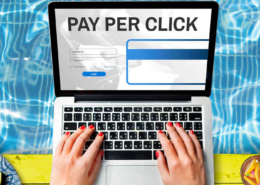The A-Z of Your Airbnb Service Fee: All You Need To Know
Maintaining proper oversight of your Airbnb service fee is an essential component of the complex equation that is the operation of a successful Airbnb company. The following is an explanation of what it includes and suggestions on how you may minimise the effect it has on your bottom line.
To successfully manage an Airbnb rental, you will often need to do a balancing act to keep track of the myriad of minute details, such as the Airbnb service charge. Your Airbnb business’s profitability and return on investment are directly impacted by all costs, fees, and taxes incurred during its operation, including the Airbnb service charge.
As a result of this, it is essential to have a solid understanding of the inner workings of all of the charges. This will protect you from being surprised by Airbnb’s hidden costs and will guarantee that your company continues to be successful.
The following provides a detailed explanation of every aspect of your Airbnb service charge that you should be aware of.
What Are Airbnb Service Fees?
An Airbnb service fee is a cost that may be levied to hosts and/or guests by Airbnb in return for the platform’s provision of marketing, administrative, and round-the-clock customer support services.
This cost is calculated as a percentage of the total amount of each reservation that is made. It is applied automatically, relieving both hosts and tourists of the burden of determining how much money to set up for the tax. The transaction history of Airbnb hosts will show that this cost was removed from their host payment, whereas the transaction history of Airbnb guests will show that it was applied at checkout while they were finishing up their reservation.
How Much Is the Airbnb Service Fee?
There are two distinct models for the service fees that are charged by Airbnb: the split fee and the host-only fee. The following is a list of the primary distinctions between the two:
1. The Split-fee
As the name implies, the split fee halves the service fee charged by Airbnb between the host and the visitor, with the guest bearing the bulk of the costs.
This cost arrangement has certain advantages, one of which is that hosts have the seeming ability to set lower nightly rates since they are not required to pay as high of a charge. The most significant disadvantage, on the other hand, is that customers may have the impression that they have been taken advantage of when a significant additional charge is not disclosed until the last step of the purchase process.
What hosts and guests pay
According to the split-fee approach, hosts are responsible for contributing around 3% of the reservation’s total cost, excluding taxes. However, Airbnb may assess a higher cost for hosts who participate in Airbnb Plus, hosts who have listings located in Italy, and those who choose the Super Strict cancellation policy as their preferred option.
The bulk of the service costs will be paid for by the guests. On average, the guest fee is equal to around 14.2% of the entire amount that they have charged for their bookings.
2. The Host-only Fee
Because of the way the fees are structured, the host is responsible for paying the service charge. Although this may seem to be a less desirable choice for hosts, ultimately, it will provide you greater control over the nightly prices that you charge for your accommodations. In addition, it makes guests more content by preventing them from being surprised with unanticipated charges for guest services when they check out.
This cost must be paid by hotels and software-connected hosts at all times, unless the majority of those hosts’ listings are situated in the United States of America, Canada, the Bahamas, Mexico, Argentina, Taiwan, or Uruguay.
What hosts and guests pay
Between 14 and 16 per cent of the reservation’s total cost is covered by the host’s payment.
The host may opt to increase the nightly cost to indirectly shift part or all of the service charge to the visitor. However, the guest will not be responsible for paying a service fee.
3. Airbnb Experiences service fee
There is a service charge equal to 20% of the total price of the experience that must be paid by hosts who provide Airbnb Experiences. Airbnb deducts this charge from the amount that is paid out to the host as well. This service charge may be waived on occasion if the experience in question has a significant societal benefit.
Do Hosts Have to Cover the Airbnb Service Fee?
If a host uses Airbnb’s platform and services, they will inevitably be required to pay the company’s associated costs. However, the actual amount that you are required to pay will change based on the fee structure that is required in your area as well as the percentage of the cost that you choose to pass on to your guest(s).
We will talk about some of the ways that you may prevent or reduce the effect that the Airbnb service charge has on your bottom line a little bit later on in this section. To begin, though, it is essential to have an understanding of the reasons why the Airbnb host-only service charge can be a good choice for your listing.
What Are the Pros of Using the Airbnb Host-Only Fee?
You will have a greater degree of control over your business operations if you choose the host-only charge, which is the primary benefit of this payment structure. The end consequence is that this results in the following advantages:
Guests could pay less, while your revenue will stay the same
Because hosts may anticipate that the whole service cost would be taken from the hosted payment, they will have a greater degree of control over the nightly rates at their listings.
If you adhere to a solid pricing plan, tourists may pay less under the host-only charge, yet the amount of money you bring in as a result of Airbnb will not change.
For instance, if you charged $100 each night under the split fee, then a visitor who booked a 10-night stay would be required to pay a total of $1142 in guest service fees, which would consist of $1000 plus $142. You will get $970 in income after deducting the $30 service fee that you are responsible for paying as the host of the event.
In the meanwhile, if you want to pay the host-only charge, you may increase your nightly cost to a maximum of $113 to cover the Airbnb expenses that you are already familiar with anticipating. Travellers will pay a total of $1130 without being charged any extra service fees for the same ten-night stay, which is a little lower price than the split cost. Airbnb will subtract around $158 from your paycheck due to the 14% service fee that they impose, which will bring the amount of income that you keep to $972.
Guests are not blindsided by hidden service fees at checkout
Travellers will not have the impression that they are being taken advantage of or surprised by the additional service costs put onto their subtotal at checkout since Airbnb will only remove the amount from the compensation that the host receives.
When travellers are paid the amount they anticipate, but the host takes care of the service fee in the background, the whole experience is enhanced and improves the quality of the interaction
Improve your rankings in the Airbnb search results
Airbnb raises the profile of listings that use techniques to enhance the quality of the experience provided to guests.
The booking procedure is simplified and made more open to guests thanks to the host-only charge, which also contributes to an improved visitor experience. As a direct consequence of this, Airbnb will acknowledge these listings by elevating their places within the list of search results.
How to Boost Your ROI Despite Airbnb Service Fees
Even though you will be required to pay Airbnb service fees to operate your company, it is still feasible to get the highest potential return on investment.
Despite having to pay Airbnb service fees, the following are some tried-and-true strategies that will help you maintain a lucrative Airbnb business.
Optimize your pricing
To obtain a financial advantage over your rivals, the most effective tactic is to ensure that your rates are competitively set and that your listing is generating as much income as it possibly can.
To ensure that your nightly rates are as competitive as possible while still covering all of your essential operating costs, remember to include service fees when you compute these costs with your other significant outlays. This delicate balancing effort might be challenging at times. Fortunately, there are tools available that may assist you in determining the nightly costs for your accommodations.
Using dynamic pricing tools is a sensible method to determine the costs for your short-term rental since it removes the element of guessing from the process. Your rates may be established automatically by these tools based on real-time data, trends in the industry, and variations in the market, and they can also offer you the insights you want to remain ahead of the competition.
Tools such as DPGO, Wheelhouse, and PriceLabs are at the forefront of their respective industries. Each of them utilises cutting-edge AI-based technology or world-class algorithms to assess demand and supply variations, local events, seasonality, and other data factors that might influence pricing to make the process of determining your rates more expedient and accurate.
If using intelligent pricing tools results in more income for your business, then the additional money spent on such tools is unquestionably money well spent.
More about an Airbnb pricing strategy read here.
Optimize your occupancy rate
Your income will increase according to the number of reservations that you get. Therefore, you would be more than able to make up for the fee charges if you were able to increase your occupancy rates, in addition to maintaining the competitiveness of your pricing.
To continue in this vein, if your occupancy rates are low, every booking will be that much more precious, and allowing high service costs to eat away at your revenues will not be good for your return on investment (ROI).
The following are some of the most effective techniques to maximise your occupancy rate:
- Make sure that the information on your listing is up to date.
- Develop and improve your marketing approach.
- Encourage good comments and ratings.
- Quickly respond to any questions or concerns raised by your customers.
- Make use of the Instant Book function offered by Airbnb.
Take advantage of vacation rental software
It is possible to save a large amount of money by streamlining procedures, avoiding multiple reservations, and using helpful technologies like channel managers and integration software.
Hosty provides a comprehensive range of tools that may assist in automating many aspects of your organisation. Because Hosty is an Airbnb Preferred Software Partner, it can interface without any hitches with Airbnb as well as several other top platforms, which will make the administration of your holiday rental properties much simpler.
You can do the following using HostyApp:
- To guarantee timely responses, you should implement automated triggered messaging and consolidate your conversations into a single feed using a unified inbox.
- From a single interface, you can manage various accounts and listings across the industry’s leading booking platforms.
- Streamline your visitor interactions with the help of PROtrack, a one-of-a-kind add-on tool that allows you to track the productivity of your guest care staff.
- Reservations must be synchronised across all available platforms to avoid the possibility of duplicate bookings.
- Integrating your Stripe account with Hosty enables you to generate invoices and accept payments.
- Sending out reviews from guests should be automated.
- Your cleaners should be privy to the daily cleaning schedules, and you should be able to automatically allocate cleaning duties.
- Utilizing a direct booking management solution, you may take care of direct reservations.
- In a matter of minutes, you may generate critical reports on your performance and outcomes.
- Integrating with PriceLabs, DPGO, and Wheelhouse will allow you to take advantage of intelligent price modifications.
Change your cancellation policy
The service costs charged by Airbnb vary depending on the company’s cancellation rules. Because of the additional customer assistance and administrative work required by the policy, hosts who choose to adopt the Super Strict cancellation policy pay up to 2% more in service costs than hosts who choose a less stringent cancellation policy.
Consider switching to a different cancellation policy offered by Airbnb if you’d want to save money on the service costs associated with your reservation.
Introduce a cleaning fee for your listing
With Airbnb, hosts have the option of adding a cleaning fee in addition to the overall cost of the reservation. It may be necessary to charge a cleaning fee to recoup the costs associated with making your rental home or apartment presentable for your next guests. This implies you may keep more of your earnings after deducting operating costs since you aren’t using the revenue to do so.
But keep in mind that this will add to the overall cost of a trip that the traveller books. Make sure your charges are reasonable and won’t cause tourists to go elsewhere for lodging. It is recommended that you charge no more than $65 per booking for cleaning services.
Offer additional services to guests
Increasing your income per booking by providing extra services to guests is a terrific idea. Anything that enhances the comfort of your guests is an additional service.
For an additional cost, you may provide services like daily cleaning, spa treatments, and hair and beauty services. You may also provide guided tours and hikes in the region, as well as catered dinners.
How to Avoid Airbnb Service Fees
You will inevitably have to pay Airbnb’s service fees if your vacation rental company depends on their platform and services. Yet, one might reduce their Airbnb use and so avoid the service’s costs. Here are a few possible approaches:
Encourage direct bookings
It may be beneficial to encourage direct reservations among your regular clients if you have your website for your rental property or are prepared to take the time and effort to establish one. With this, you may avoid Airbnb’s service charge.
You should know that turning off Airbnb’s help with things like customer service and paperwork means taking on those responsibilities alone.
Use competing platforms with lower service fees
You may also look for an alternative site to offer your property on to avoid paying Airbnb’s service charge. If the platform’s service costs are too high for your budget, there are several others, such as Vrbo or Tripadvisor, that may be a better fit.
It is important to remember, however, that Airbnb’s platform is the industry standard. It has several listings and a lot of visitors to its website. As a bonus, you get exposure to a large number of potential guests who may not see your listing if you decide to quit the successful platform. Before taking this step, carefully weigh the benefits and drawbacks.


















